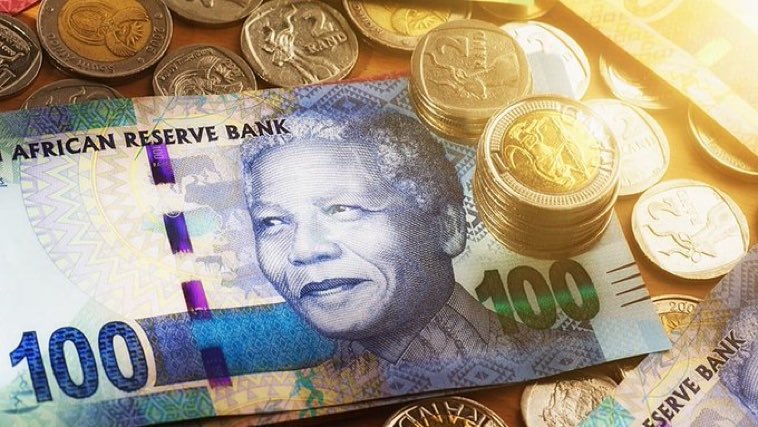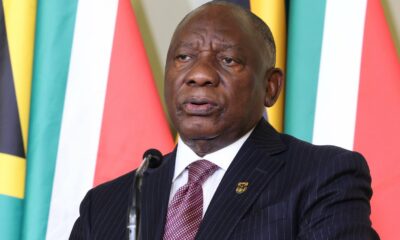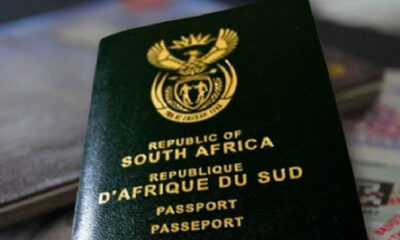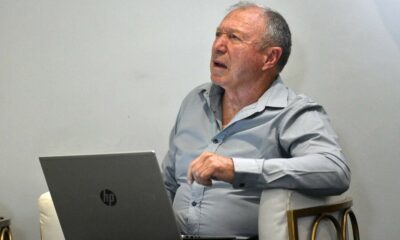News
R14 Million in Salaries for Two Deputy Ministers Sparks Outrage Amid Youth Jobs Crisis

South Africans are once again asking tough questions about how public money is being spent, especially when the country’s youth are battling historic levels of unemployment.
A recent parliamentary reply has revealed that just two Deputy Ministers in the Presidency, Kenneth Morolong and Nonceba Mhlaulicost the state over R14.4 million a year in salaries alone, including their personal compensation and that of their support staff.
The response came after ActionSA’s Parliamentary Leader, Athol Trollip, pressed for transparency around executive spending.
Who’s Earning What?
According to the figures submitted to Parliament:
-
Kenneth Morolong’s office costs taxpayers R7,399,868 annually.
-
Nonceba Mhlauli’s office sits slightly lower at R7,028,171.
These totals exclude additional operational costs like travel, vehicles, accommodation, and official allowances.
Both Deputy Ministers earn R2,215,220 per year, which includes a R10,000 monthly allowance for a Post Office Box, an eyebrow-raising detail for many South Africans.
Here’s how Morolong’s staff salaries stack up:
-
Moleme M – R1,216,824 + PNPA (R7,330 pm)
-
Lukas MJ (seconded) – R1,059,105 + PNPA
-
Masike DR – R896,436 + PNPA
-
Phakwe JM – R228,321 + PNPA
-
Moje BS – R163,680
-
Mzala DS – R163,680
Mhlauli’s staff package looks similar:
-
Titus MM – R1,247,574 + PNPA
-
Mbele MP – R1,216,824 + PNPA
-
Dayi SB – R896,436 + PNPA
-
Shirimba M – R896,436 + PNPA
-
Tolofane MA – R228,321 + PNPA
-
Maqaza TW – R163,680
-
Manyathi BSN – R163,680
The PNPA (Professional Negotiated Performance Allowance) is an additional perk paid monthly to several senior staff.
Perks and Privileges, All Within the Rules
Morolong pointed to the official Guide for Members of the Executive (2 November 2022) to explain the allowances and benefits.
Some key points:
-
International travel for a minister and their spouse (or adult relative) is covered by the Department.
-
Flights under two hours must be economy class, but anything over two hours can be booked in business class.
-
Accommodation should be in 5-star hotels or equivalent, as long as rates are “reasonable.”
-
Each Deputy Minister is entitled to one official vehicle per seat of office, capped at R800,000, inclusive of VAT, security upgrades, and maintenance.
-
Where vehicles aren’t available, similar models can be hired at state cost.
-
Interestingly, no daily subsistence or travel allowance is paid for domestic trips for ministers, spouses, or minor children.
On paper, everything is policy-compliant. In practice, the timing could not be worse.
A Country in Crisis
While ministers and their teams earn millions, the numbers facing young South Africans are bleak:
-
Youth unemployment (15–34 years): 46.1%
-
Unemployment among 15–24-year-olds: 62.4%
Some provinces are even worse:
-
Eastern Cape – 54.3%
-
North West – 58.8%
Women are hit hardest:
-
Young women NEET (Not in Employment, Education, or Training): 48.1%
-
Young men NEET: 42.2%
South Africa’s presidential spokespersons often urge patience and stress fiscal discipline, but many young people feel the message doesn’t match the money.
Public Reaction: “Two Ministers, R14 Million, Zero Impact”
On social media, reactions range from disbelief to outright fury:
-
“R10k a month for a PO Box? Does the mail come with wheels?”
-
“You can hire 300 youth interns with that kind of budget.”
-
“Imagine being unemployed and reading that your leaders stay in 5-star hotels.”
Activist groups have compared the salary bill of these two offices to the budgets of youth employment programmes that have been slashed or frozen.
Even some ANC supporters have quietly admitted the optics are terrible.
The Bigger Question: Priorities or Politics?
Morolong’s detailed salary breakdown gives the impression of transparency and accountability. Yet, transparency doesn’t always translate to trust.
South Africans are not just angry about the numbers, they’re frustrated about what they represent:
A government that appears well-resourced while millions struggle to survive.
With service delivery failures, rising cost of living, and a generation effectively locked out of the economy, the public mood is turning sharper.
No one disputes that ministers and their teams need to be paid. The issue is scale and timing.
When taxpayers hear that two offices consume over R14 million a year before travel, vehicles, and accommodation, the argument of “regulated spending” feels hollow.
Until young people see money moving with the same urgency toward jobs, training, and livelihoods, these disclosures will only deepen the sense that government lives in a different country to the people it serves.
{Source: IOL}
Follow Joburg ETC on Facebook, Twitter , TikTok and Instagram
For more News in Johannesburg, visit joburgetc.com



























